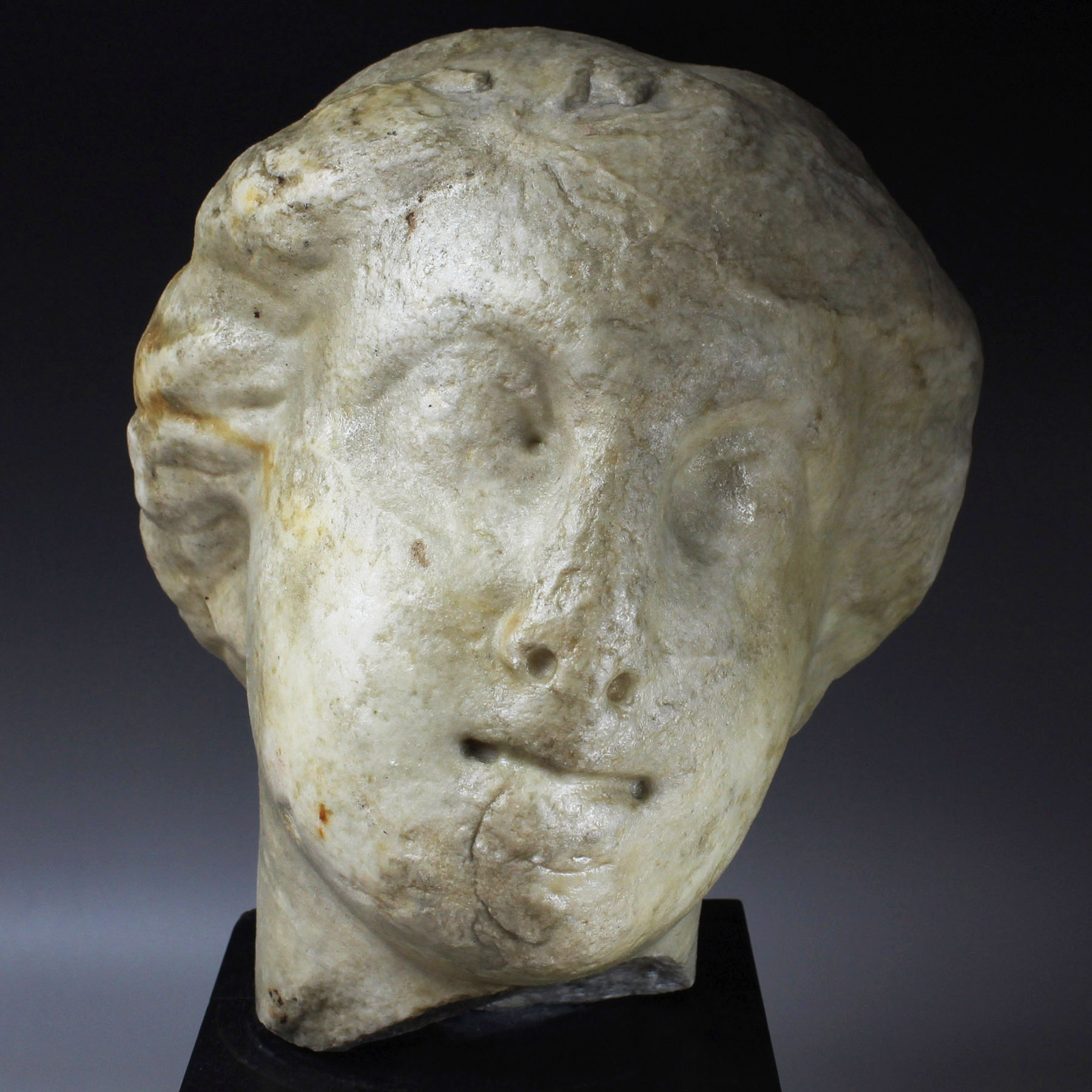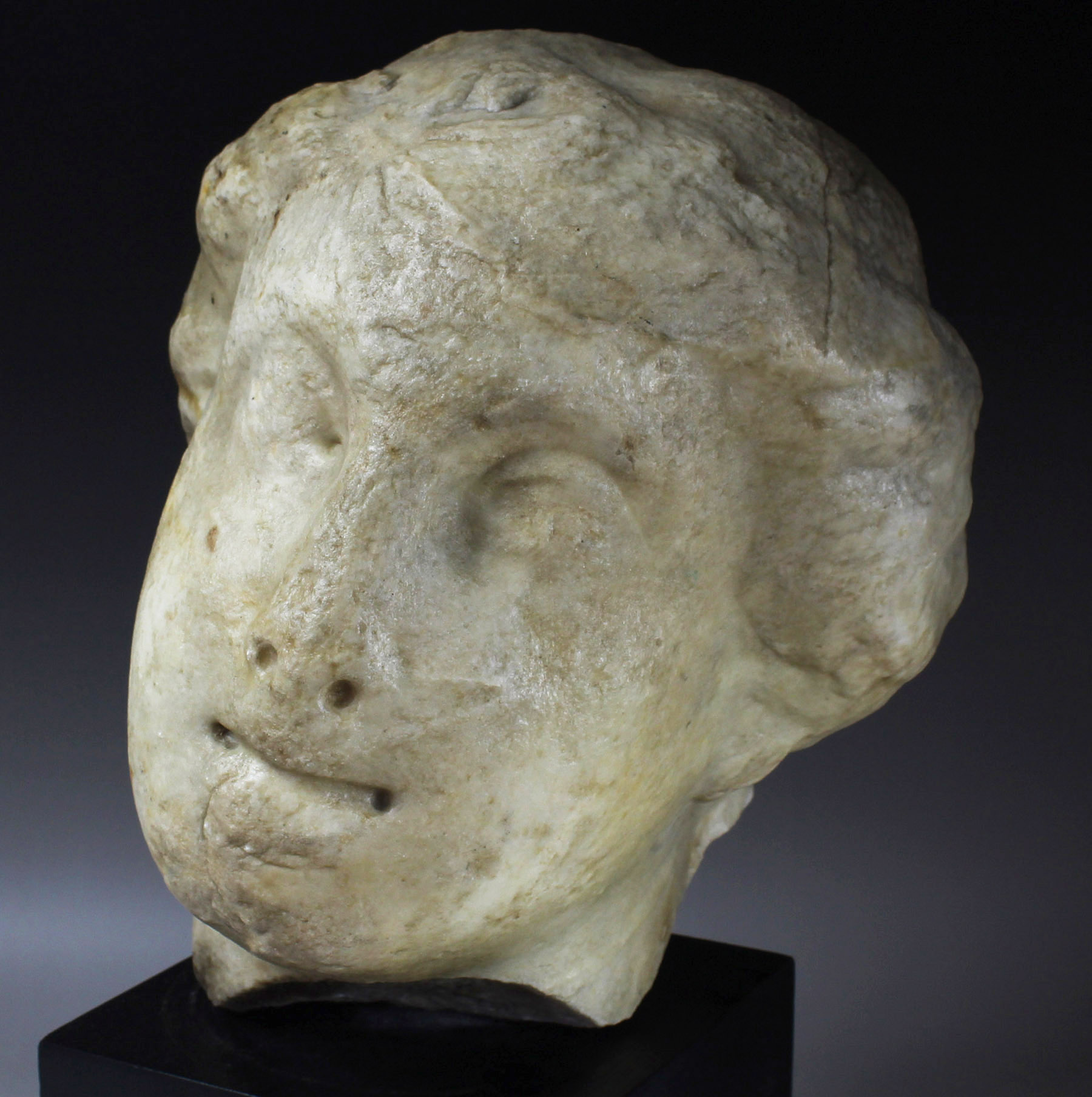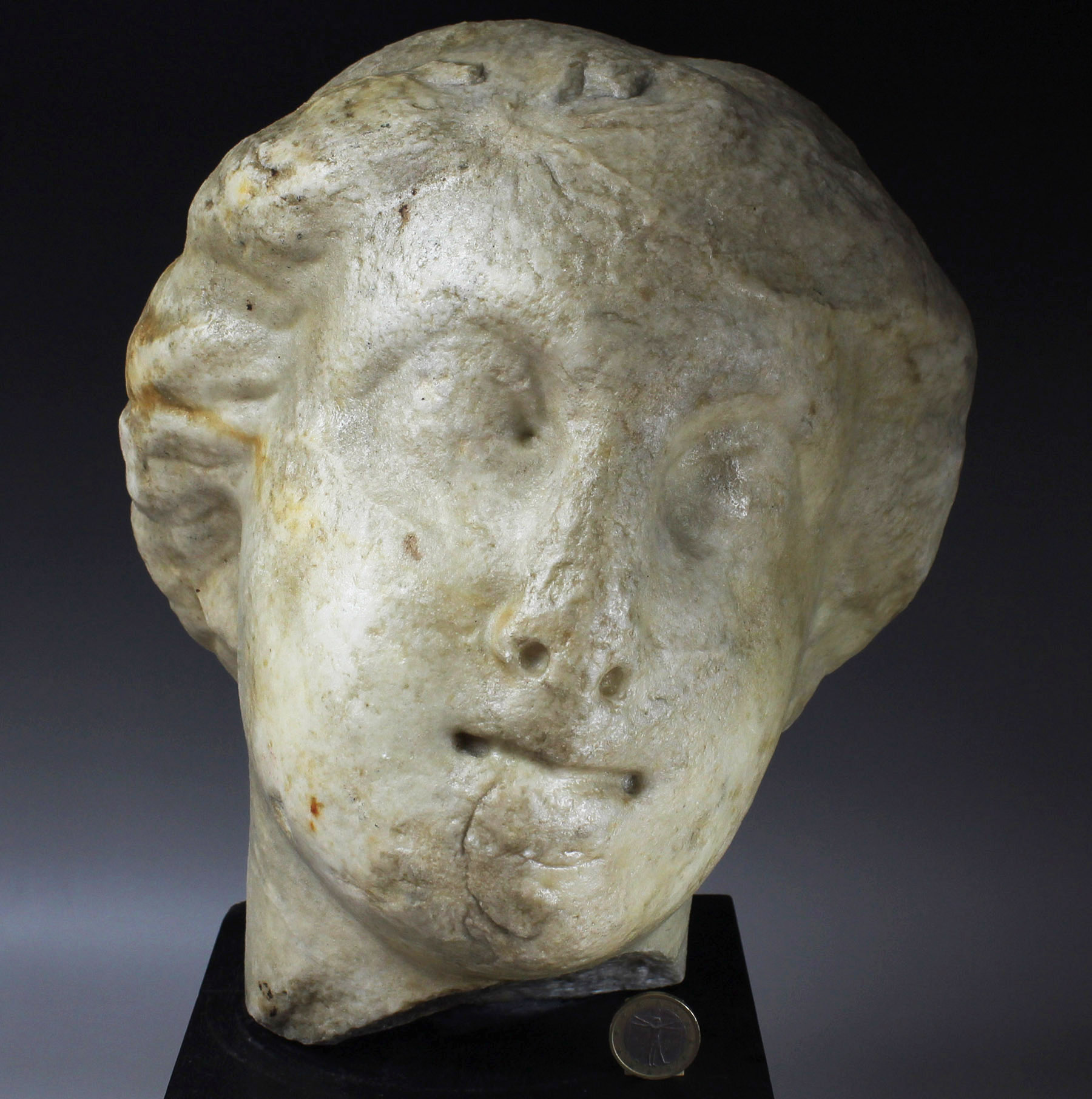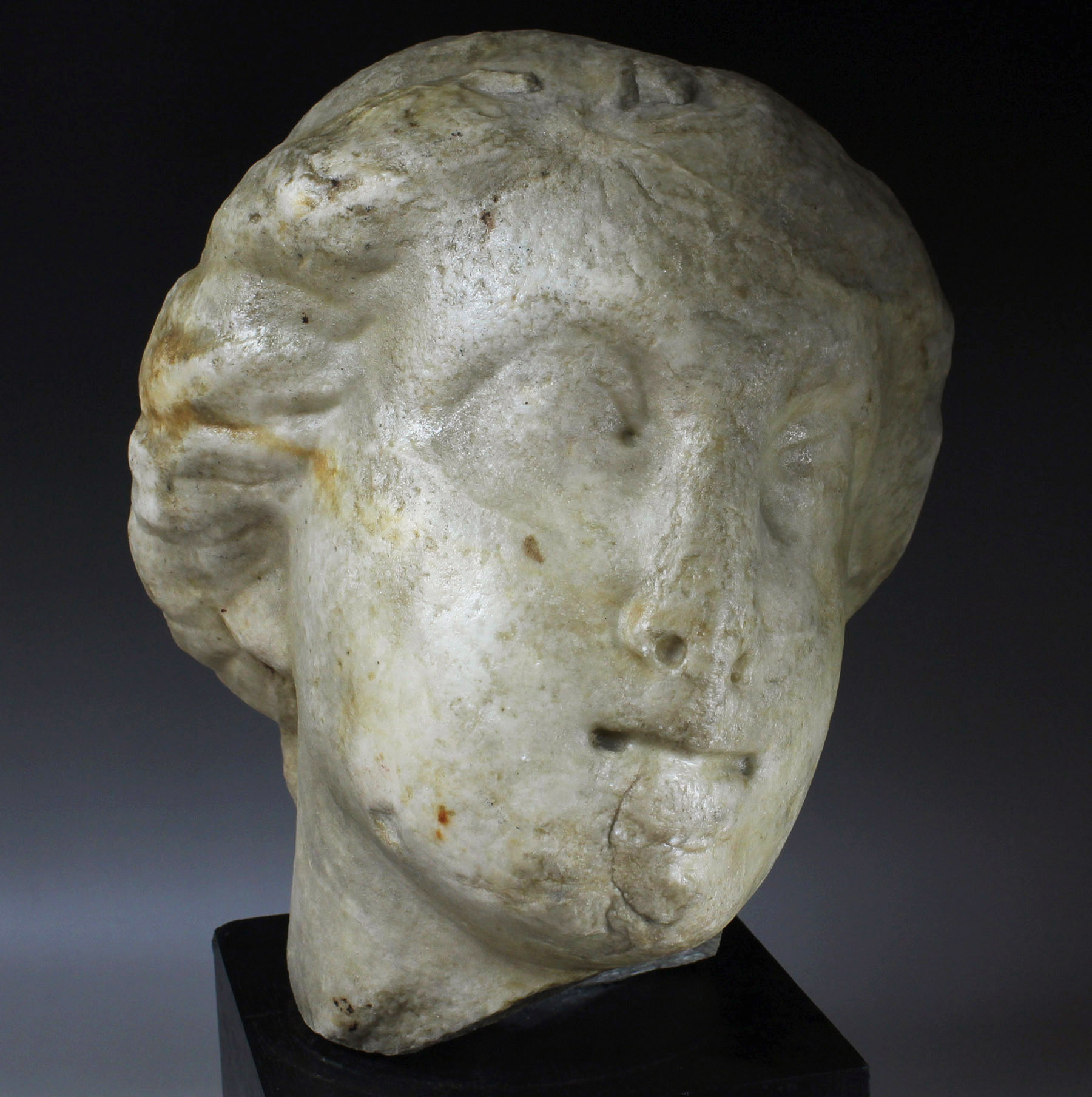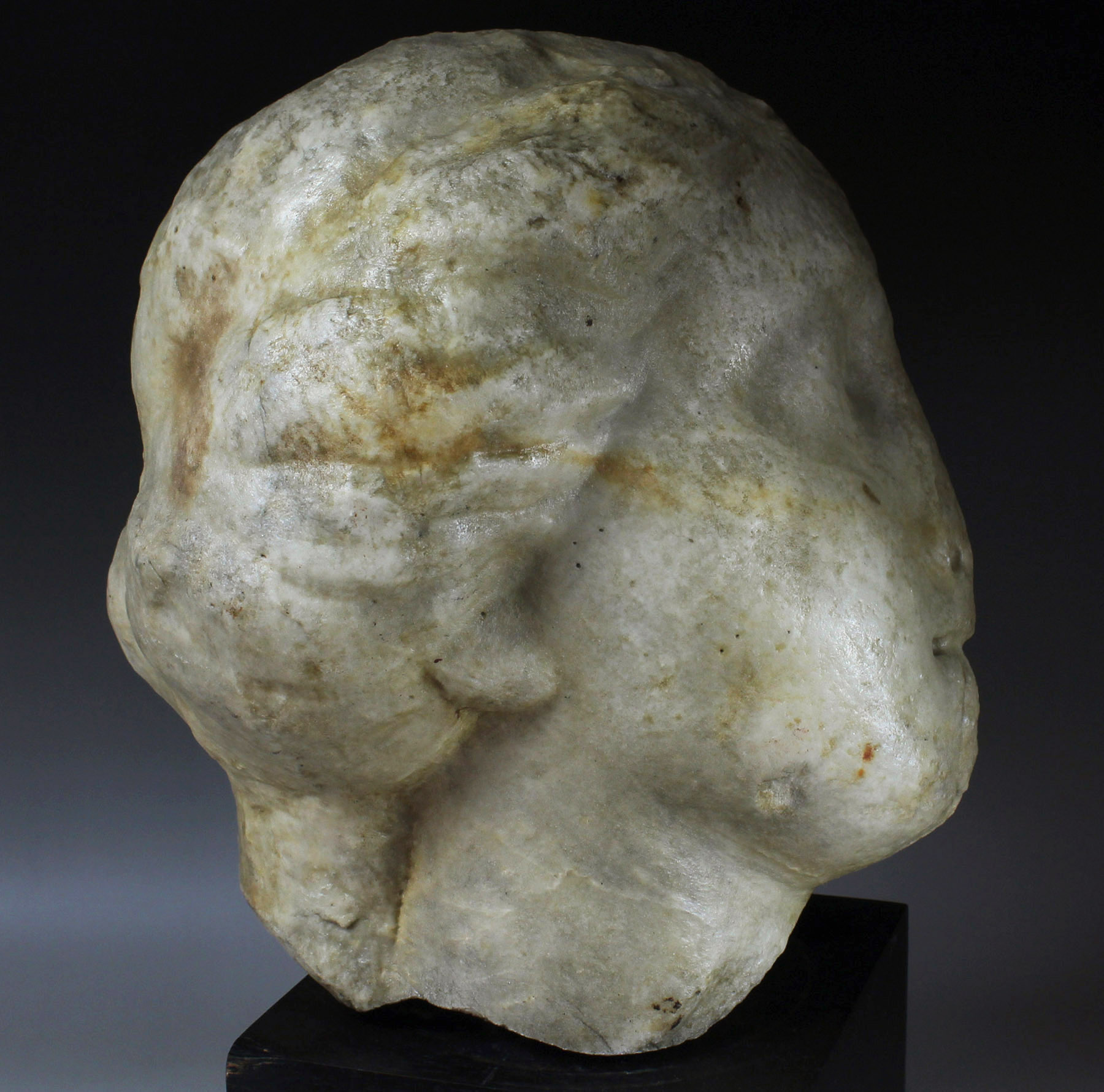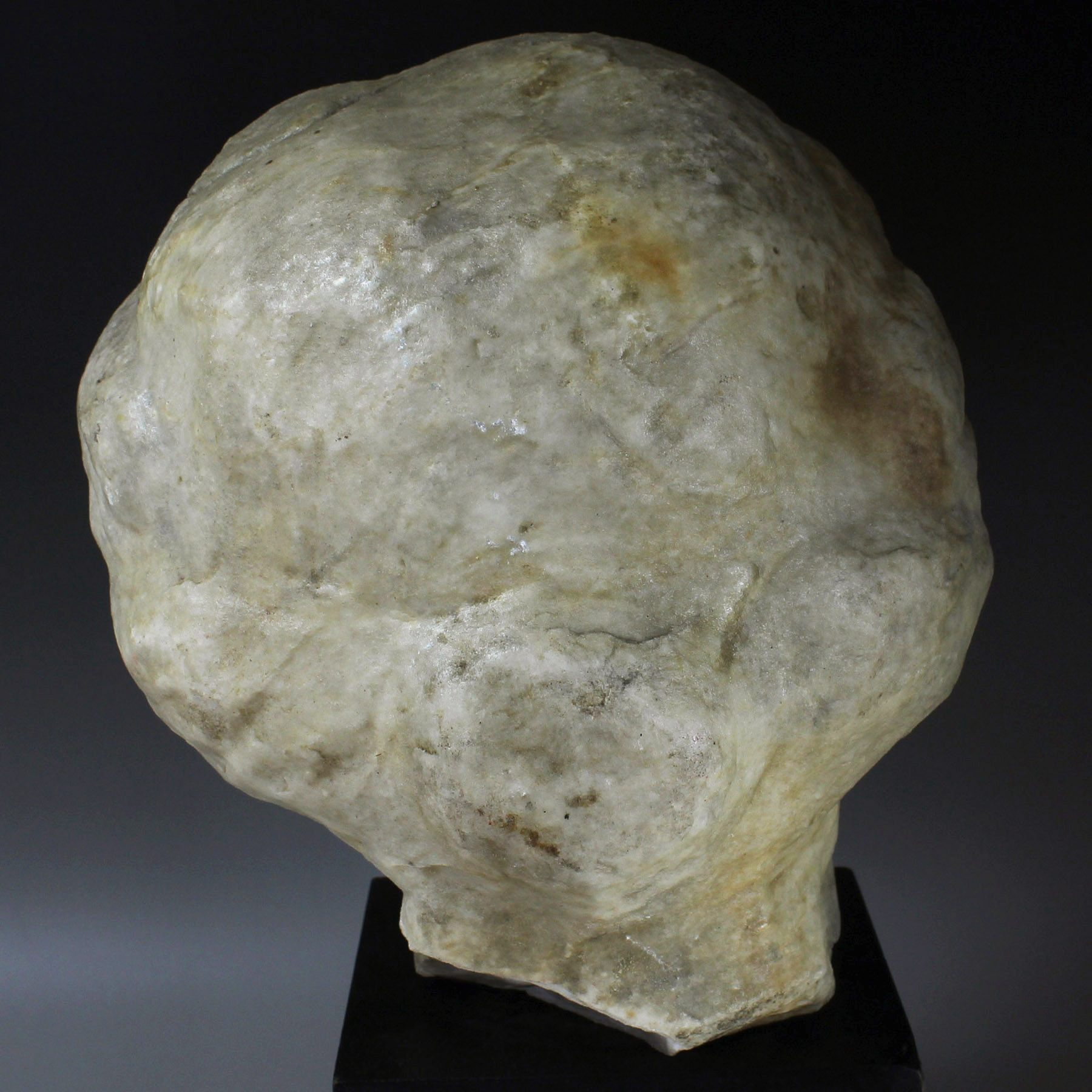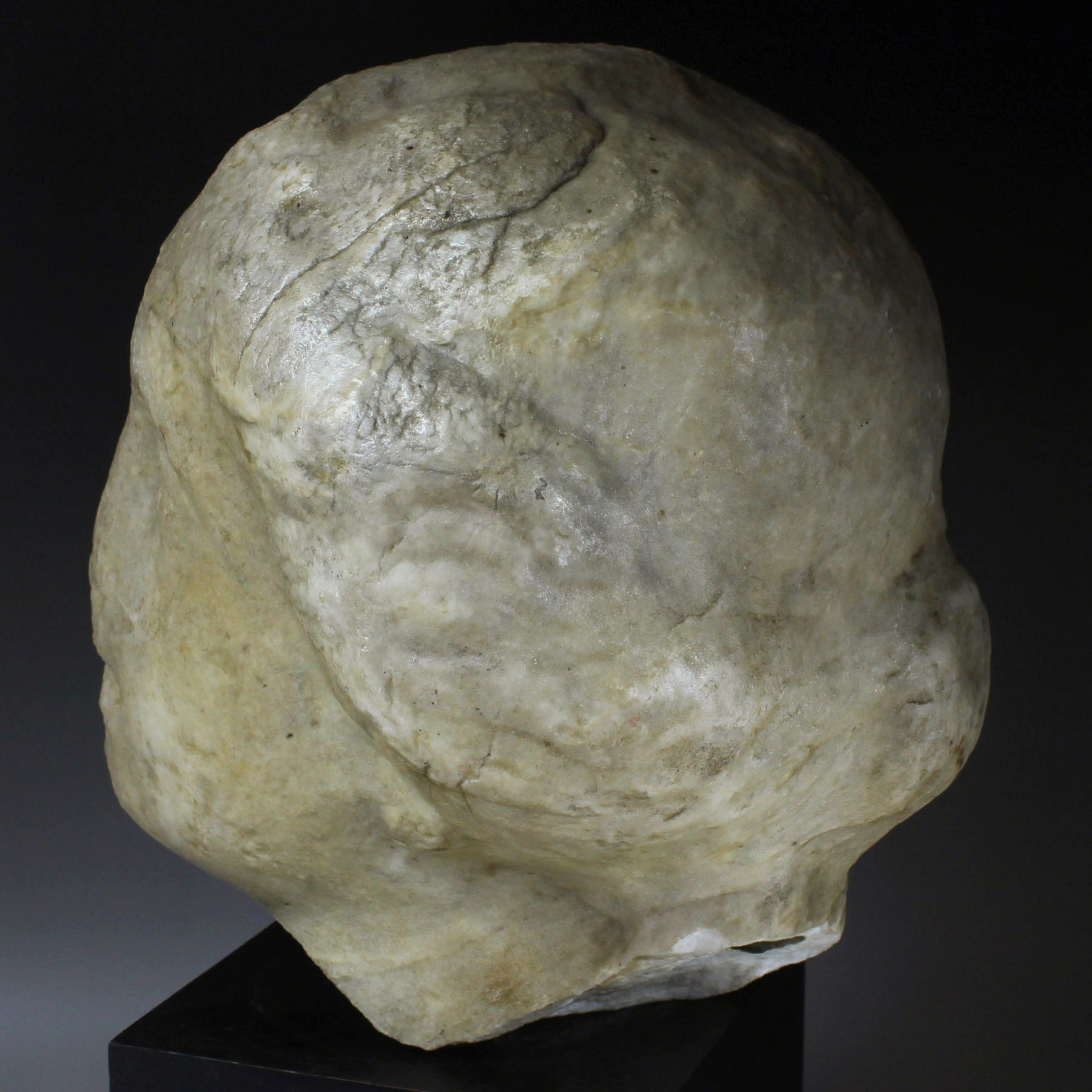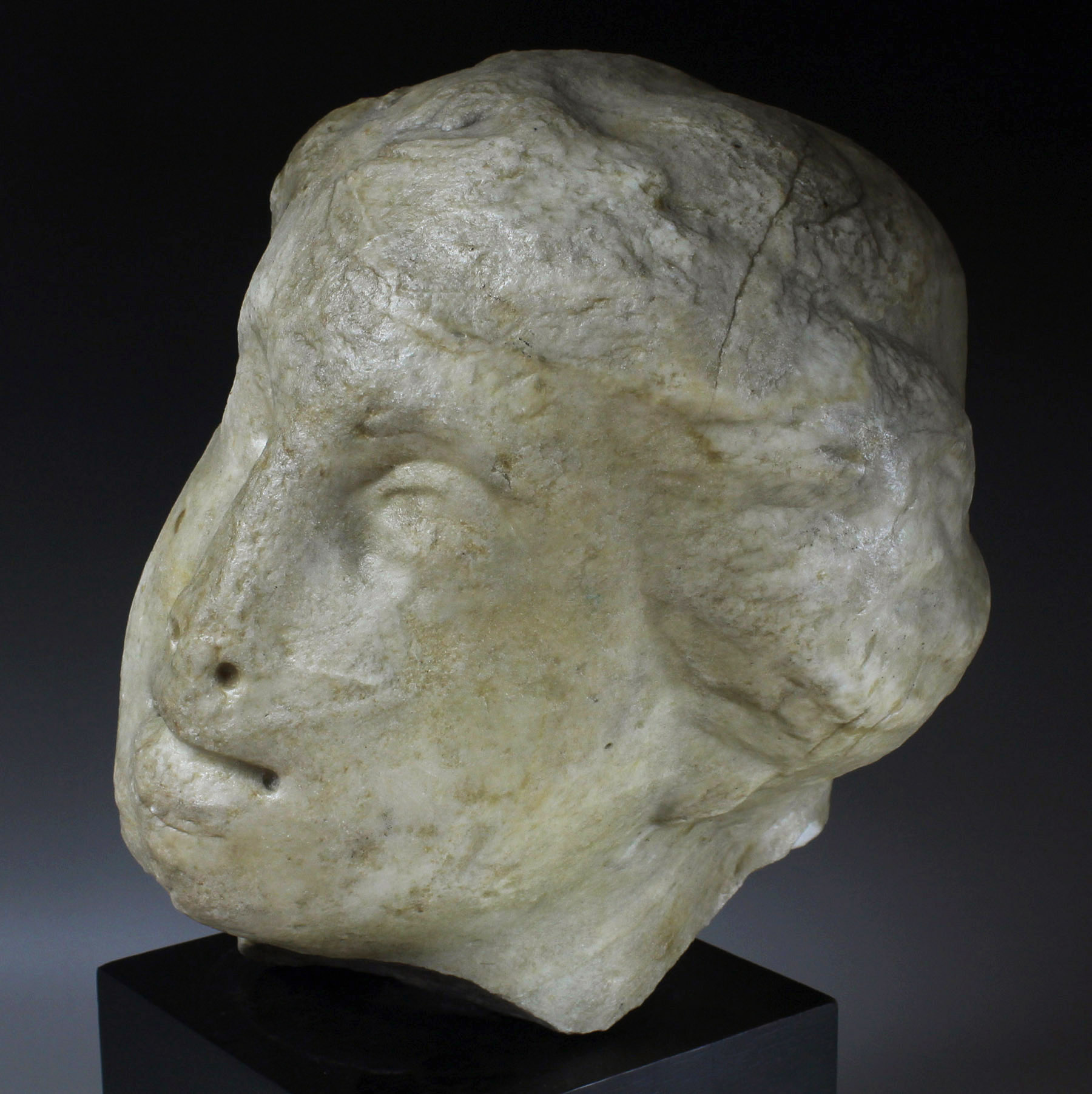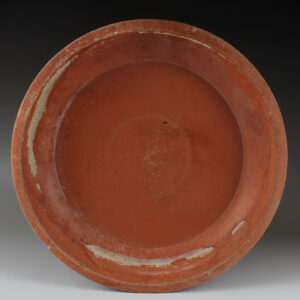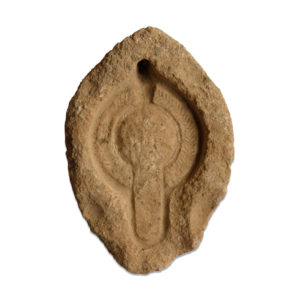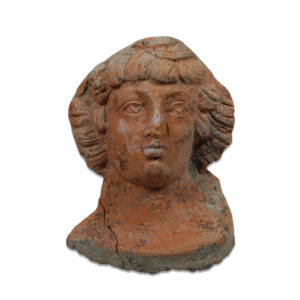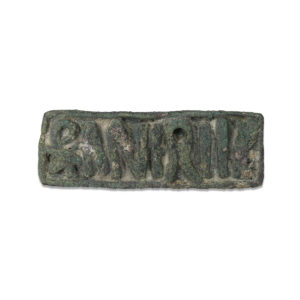Description
| ITEM | Head of a goddess |
| MATERIAL | Marble |
| CULTURE | Roman |
| PERIOD | 1st – 2nd Century A.D |
| DIMENSIONS | 265 mm x 240 mm x 230 mm (without stand), Life size |
| CONDITION | Good condition. Includes stand |
| PROVENANCE | Ex Belgian private collection, D.S., acquired between 1970’s – 1990’s |
Roman mythology, like that of the Greeks, contained a number of gods and goddesses, and because of the early influence of Greece on the Italian peninsula and the ever-present contact with Greek culture, the Romans adopted not only their stories but also many of their gods, renaming a number of them. One exception to this practice is the god Apollo, the only god whose name is common to both cultures. Originally, before their association with the Greeks, many of the Roman gods were more closely associated with cults rather than myths (as was the case with the Greek hero Heracles who became the Roman champion Hercules). Much of this change came, however, when the Romans turned from farming to war.
Early in the development of Roman mythology, there was Saturn, equivalent to the Greek god Cronus. His temple at the foot of Capitoline Hill included the public treasury and decrees of the Roman Senate. The triad of early Roman cult deities were recreated as Jupiter, Juno, and Minerva; the latter was the patron saint of craftsmen and goddess of school children (later associated with Athena). Jupiter, the sky-god, became more akin to the Greek Zeus. Jupiter influenced every aspect of a Roman’s life; his temple on Capitoline Hill was the final destination of many victorious military commanders who would leave a portion of their booty as an offering to Jupiter. His wife (and sister) Juno became reminiscent of Hera, presiding over every facet of Roman women’s life, and in the case of Aeneas, vindictive against those she disliked.
Similarly, the love-goddess Aphrodite became Venus, born from the foams of the sea, while the brothers of Zeus, Hades and Poseidon, became Pluto and Neptune respectively. The Greek Artemis was renamed Diana, the goddess of the hunt, while Ares, the war god, was now Mars who originally had been an agricultural god associated with spring, a time of regeneration (March is named for him). Roman commanders would always make a sacrifice to him before a battle. And lastly, one must not forget Hermes, the messenger, who turned into Mercury, a minor deity who had at one time been the god of trading and profit and, as mentioned, Hercules, the Roman version of Heracles.


